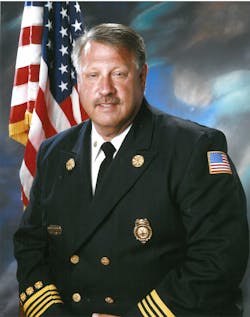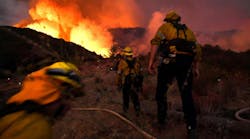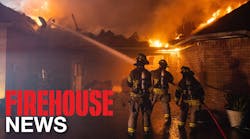A move is afoot to change the title of anyone involved in the delivery of EMS to the universal label of “paramedic.” The problem is that there are already four nationally recognized levels of EMS providers established: emergency medical responder (EMR), emergency medical technician (EMT), advanced emergency medical technician (AEMT) and paramedic. These levels correspond to the education standards developed by the Department of Transportation’s (DOT) National Highway Traffic Safety Administration (NHTSA) and the National Registry of EMT’s examination, and these terms are the most common language for licensure or certification in all 50 states.
When the DOT developed the curriculum, the training and education for each level was based on Practice Analysis, Core Competencies, Scope of Practice and Education Standards. Each level is distinctly different, and the titles reflect the proper name for each level of EMS provider.
The issue of “confusion”
This all started when a few members of the National EMS Advisory Council (NEMSAC) wanted to push this name change. In December 2016, a working committee group issued a statement titled, “Changing the Nomenclature of Emergency Medical Services Is Necessary.” In the statement, the committee—not the full NEMSAC Board—said that the federal government, “should officially recognize and use ‘paramedic’ as the all-inclusive standard generic term nationally to describe all practitioners performing within the field of paramedicine, regardless of certification or licensure.” Translated, regardless of your current level of training, anyone performing EMS should be called a “paramedic.”
Another national EMS organization representing EMS managers has now also issued a position statement arguing that “paramedic” be the only word used to describe any practitioner performing in the EMS field, citing that too many titles adds to confusion among the general public.
Will this work? Let’s consider Alabama and Mississippi—states that grant certifications to someone to be an “ambulance driver.” These ambulance drivers have no medical training and no other certifications other than they are authorized to drive an ambulance. Under the proposed nomenclature change, you’ll need to start calling them paramedics, as they are involved in the practice of delivering EMS.
What about an EMR with 48 hours of medical training? Yup! You’ll need to start calling them paramedic if the proposals gain adoption.
What would happen if we applied these same recommendations to other medical fields? First, a licensed practical nurse (LPN), a certified nursing assistant (CNA), a registered nurse (RN) and a nurse practitioner (NP) would each be lumped into the collective term of “nurse.” You could also apply this to other medical fields. Would we want all physician assistants and physicians to simply all be called “physicians”?
Those who argue for this nomenclature say that different titles confuse the public. Some of the advocates for name change contend that there is the possibility of 37 different titles for EMS providers. A quick Google search of the different titles you will find in a hospital exceeds 300. Does this mean that we need to change the title of everyone working in a hospital to be the same so it does not confuse the public? I doubt the general public truly cares what title you are. All they care is that someone shows up and takes care of their needs when they call 9-1-1.
Where the real confusion will come is when there are five or six people from a large department with 500, 1,000 or more employees. When an ambulance and engine company are both dispatched simultaneously to the same scene, it is not uncommon to find yourself working a call with four people who you have never met before. Customarily, a quick scan of their uniforms will usually tell you which firefighters are EMTs and which are paramedics—an importance distinction, one that is especially good to know if you are the only paramedic on the scene.
Imagine the confusion if every firefighter had the words “paramedic” on their shirt, name tag or rocker below their patch. Imagine the confusion if one of those firefighters only had an EMR certification of 48 hour of medical training. I don’t think we would have to worry about the public being confused; it’s the EMS providers who would be confused!
In sum
With all that EMS has to worry about these days—inadequate reimbursement, sleep deprivation, appropriate pay, decent working conditions, etc.—you would think we would find a bigger priority to champion.






